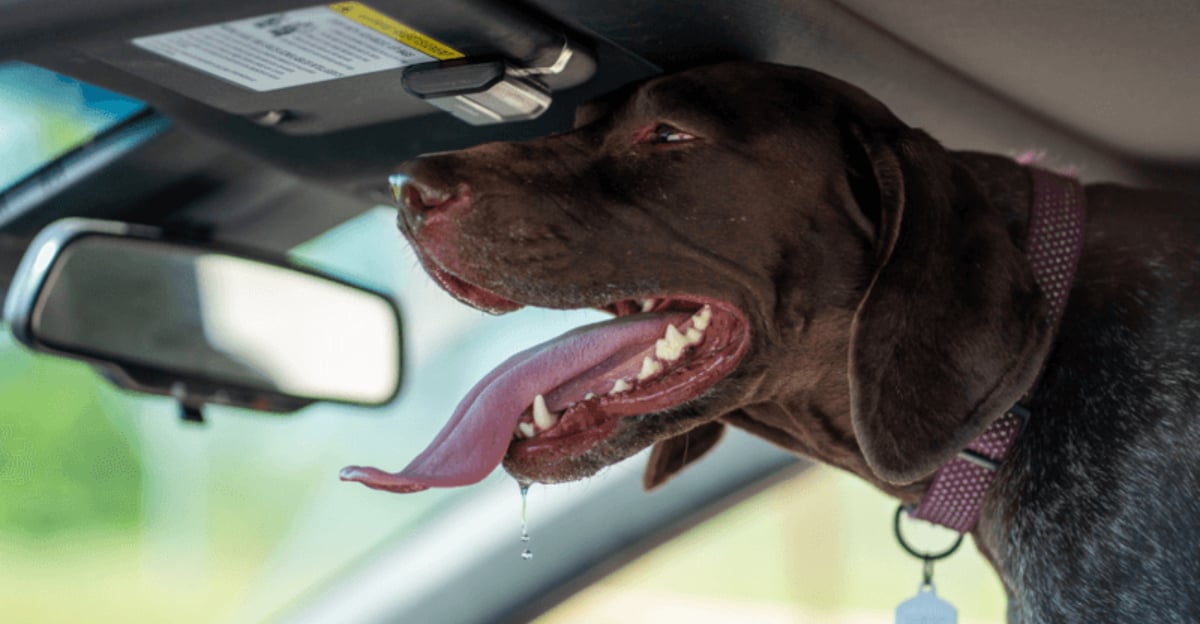Living in Florida with a dog isn’t always easy.
The heat, wildlife, and lifestyle bring surprises. I’ve been raising dogs here for over a decade. To be honest, I have learned plenty of lessons the hard way.
I’ll share the common mistakes Florida dog parents make — and how to avoid them for happier, healthier pups.
1. Not Providing Enough Shade And Cooling
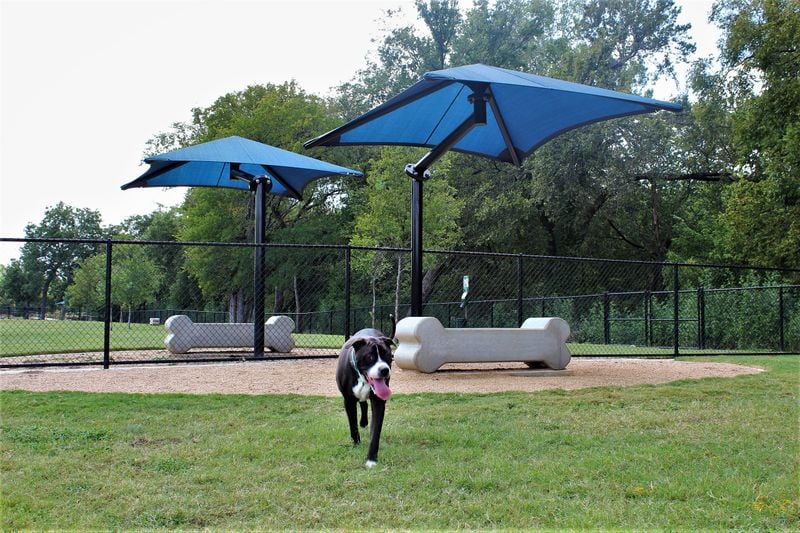
Florida’s scorching sun can quickly become dangerous for our four-legged friends. My Labrador Samson once suffered heat exhaustion after I underestimated how hot our backyard could get during summer afternoons.
Dogs need constant access to shaded areas and fresh water when outdoors.
Consider installing misting systems, providing cooling mats, or setting up kiddie pools for your pup to splash in. Indoor temperatures should remain comfortable even when you’re away.
Remember that certain breeds, especially those with thick coats or flat faces, struggle more in heat.
2. Ignoring Flea And Tick Prevention
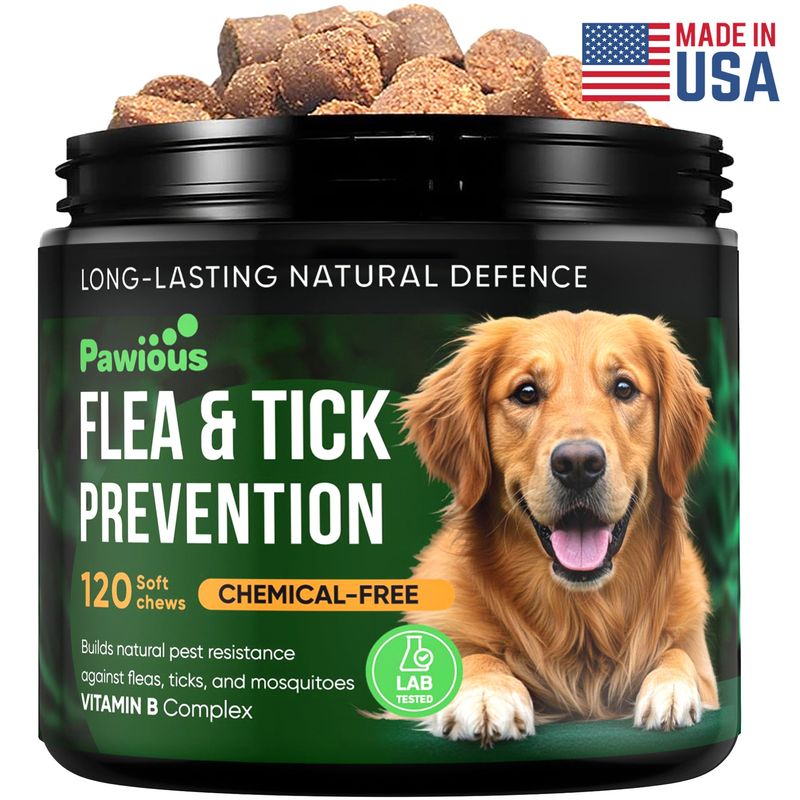
Parasites thrive in Florida’s humid climate year-round.
Consistent prevention is crucial and more effective than treating an existing problem.
Talk with your vet about the best options for your dog, whether that’s oral medications, topical treatments, or collars. Some products also protect against heartworm, which mosquitoes transmit frequently in our state.
Check your dog regularly for ticks, especially after walks near wooded areas or tall grass.
3. Not Securing The Yard Properly
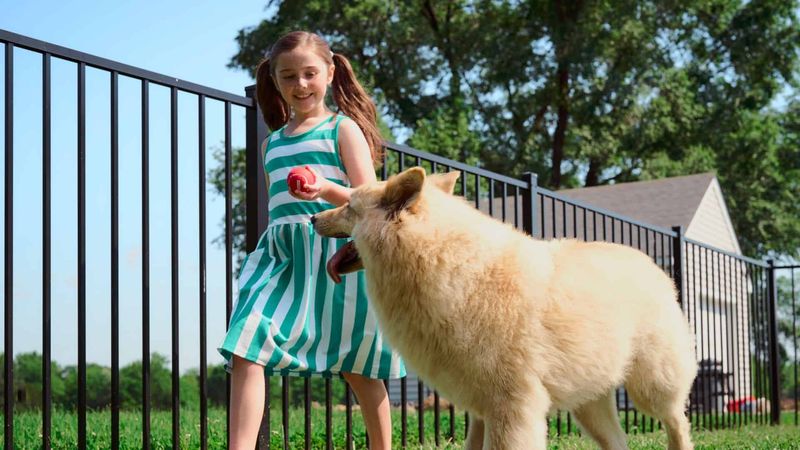
This is something I learned when my neighbor’s dog had a run-in with a bufo toad.
Inspect your fence regularly for gaps or weak spots. Many Florida dogs are escape artists due to distractions from abundant wildlife. Consider fencing that extends underground to prevent digging and is tall enough to prevent jumping.
Remove potentially toxic plants common in Florida landscapes, like sago palms and oleander. Keep pools secured with fences or covers when not in use.
A properly secured yard provides peace of mind and safe outdoor enjoyment for your four-legged family member.
4. Walking Dogs During Peak Heat

Sidewalks and asphalt can reach blistering temperatures that burn sensitive paw pads in seconds.
Schedule walks during early morning or evening hours when temperatures are cooler. The pavement test is simple but effective: place your palm on the ground for 7 seconds – if it’s too hot for your hand, it’s too hot for paws!
Watch for signs of heat stress like heavy panting or slowing down, and head home immediately if you notice these warning signs.
5. Feeding Dogs Table Scraps Or Harmful Foods

Those puppy eyes can be hard to resist during dinner, but Florida’s food culture includes many items toxic to dogs.
Avocados from backyard trees, tropical fruits with seeds, and seafood shells can all cause problems.
Keep a list of toxic foods on your refrigerator as a reminder. Common dangers include chocolate, grapes, onions, garlic, and xylitol (found in many sugar-free products).
Even seemingly innocent foods can cause digestive upset or pancreatitis in sensitive dogs. When in doubt about a food’s safety, it’s always better to offer a dog-specific treat instead.
6. Not Socializing Dogs Properly

Florida’s dog-friendly culture means your pup will encounter many new faces, places, and experiences.
Start socialization early by exposing puppies to different environments, people, and other animals in positive ways.
Dog beaches and parks throughout Florida offer perfect training grounds, but always observe your dog’s comfort level and don’t force interactions.
Tourist areas present unique challenges with crowds and noise.
Practice short visits to gradually build confidence. Remember that socialization is an ongoing process. But ultimately, a well-socialized dog makes adventures more enjoyable for everyone.
7. Leaving Dogs Unattended In Vehicles
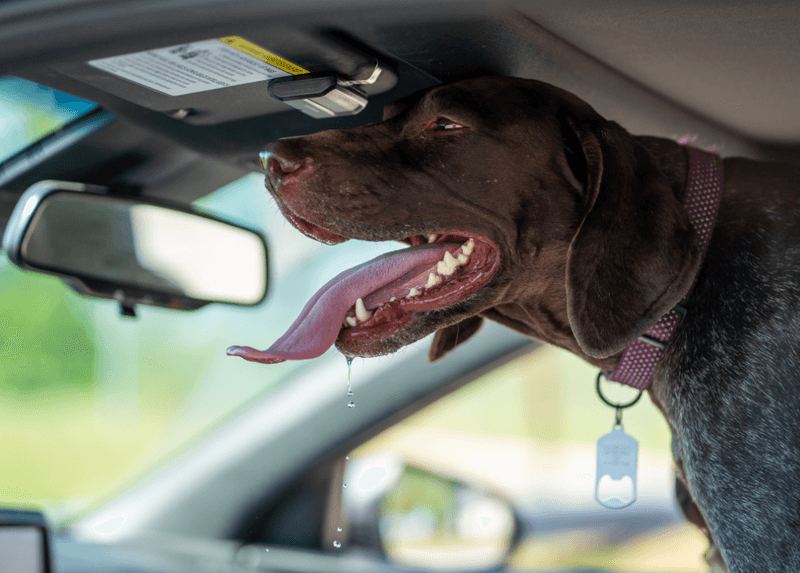
The Florida sun can turn a car into an oven within minutes, even with windows cracked. Temperatures inside vehicles can rise 20 degrees in just 10 minutes, creating fatal conditions faster than most people realize.
Never leave your dog alone in a car – not even for a “quick” errand. When traveling, plan pet-friendly stops or have a second person stay with your dog while you run errands.
Many stores now offer designated pet-friendly shopping hours or areas.
8. Neglecting Regular Vet Visits
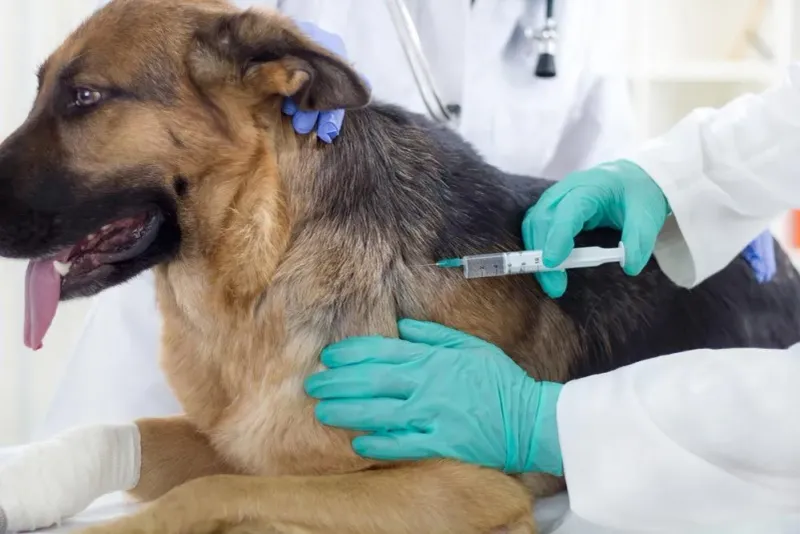
Schedule wellness exams at least annually, or semi-annually for senior dogs.
Florida vets are specially trained to recognize regional issues like certain parasites, heat-related problems, and tropical diseases. Keep vaccination records updated, particularly for rabies, which is required by law.
Consider pet insurance to manage costs, as emergency care for heat stroke or wildlife encounters can be expensive.
After postponing checkups during my dog’s senior years, we discovered health issues that could have been treated more effectively if caught earlier.
9. Not Providing Enough Exercise
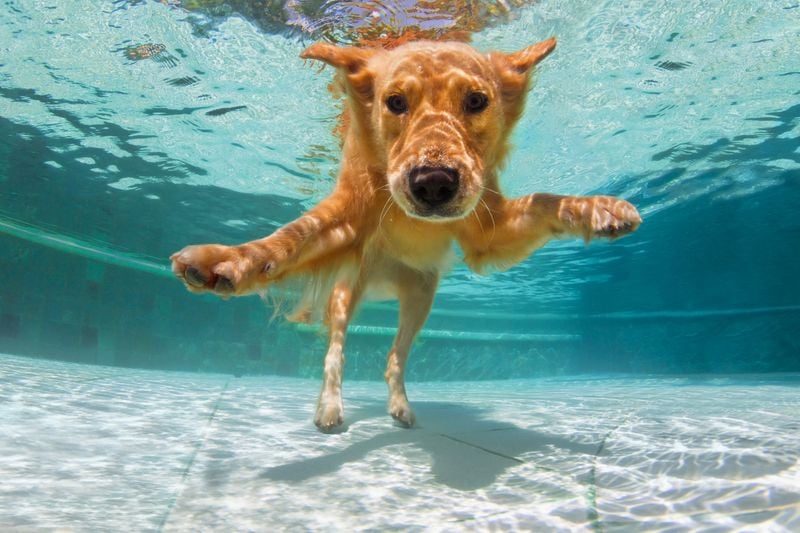
My energetic pup taught me that skipped exercise sessions lead to destructive behaviors faster than you can say “chewed flip-flop.”
Adapt exercise routines to weather conditions rather than eliminating them. Swimming provides excellent low-impact exercise and cooling – many Florida communities have dog pools or beaches.
Indoor games like hide-and-seek or puzzle toys can provide mental stimulation during the hottest parts of the day.
Early morning or evening walks reduce heat exposure while maintaining routine.
10. Failing To Protect From Hurricanes

Hurricane season demands preparation for the whole family – including pets.
Create a pet emergency kit including medical records, medications, food, water, and comfort items.
Ensure your evacuation plan includes pet-friendly accommodations, as many shelters don’t accept animals. Keep identification updated with current contact information and consider microchipping.
Practice getting your dog comfortable with a carrier or crate before emergencies occur. Anxious pets may benefit from calming aids or a ThunderShirt during storms.
11. Overlooking Dog-Friendly Spaces
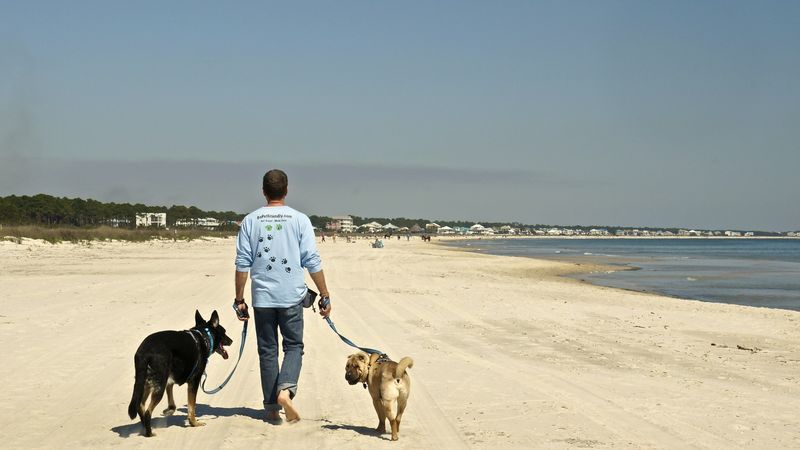
The first time I found a dog-friendly beach, it transformed our weekends completely!
Research pet policies before visiting parks, beaches, or restaurants. Many Florida establishments welcome well-behaved dogs, but rules vary by county and municipality.
Apps and websites dedicated to finding pet-friendly locations can help plan outings that include your furry friend.
Always respect leash laws and clean up after your pet to maintain access to these spaces. Pack essentials like water, shade options, and waste bags.
